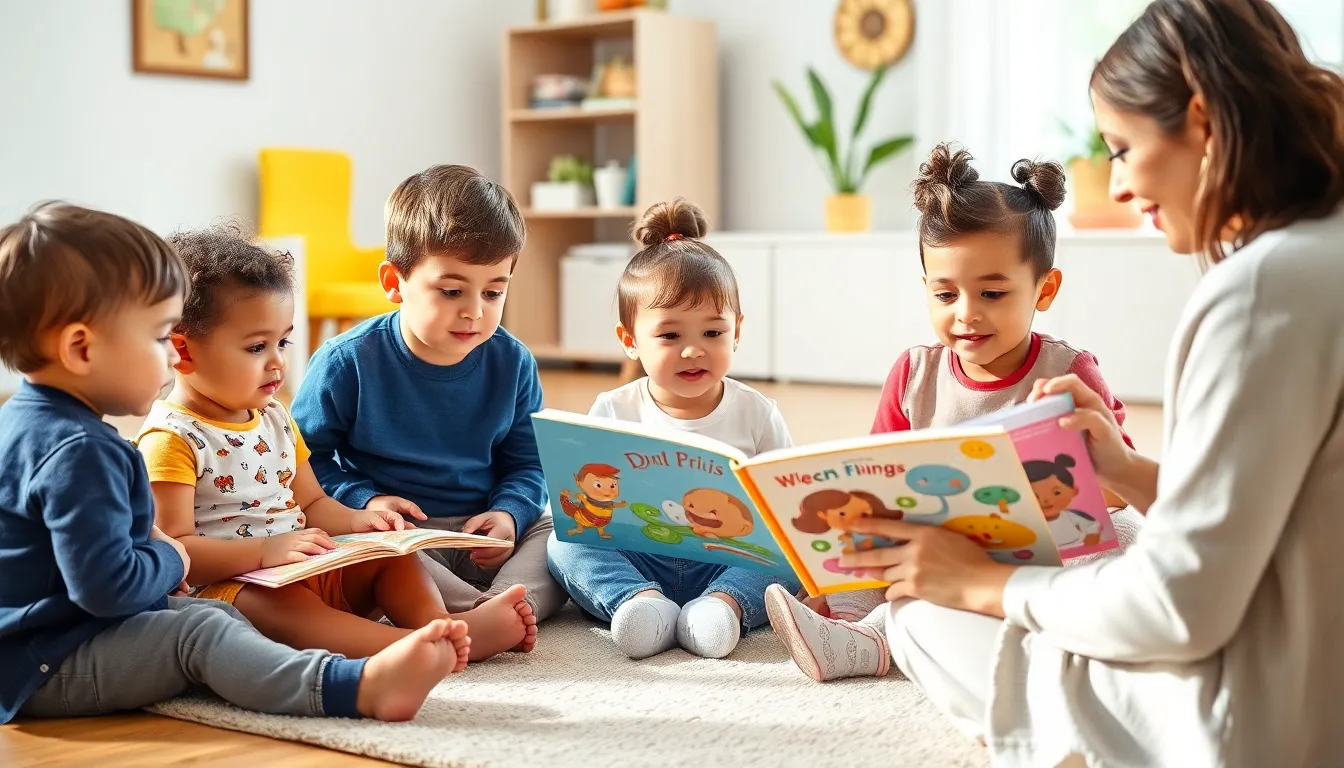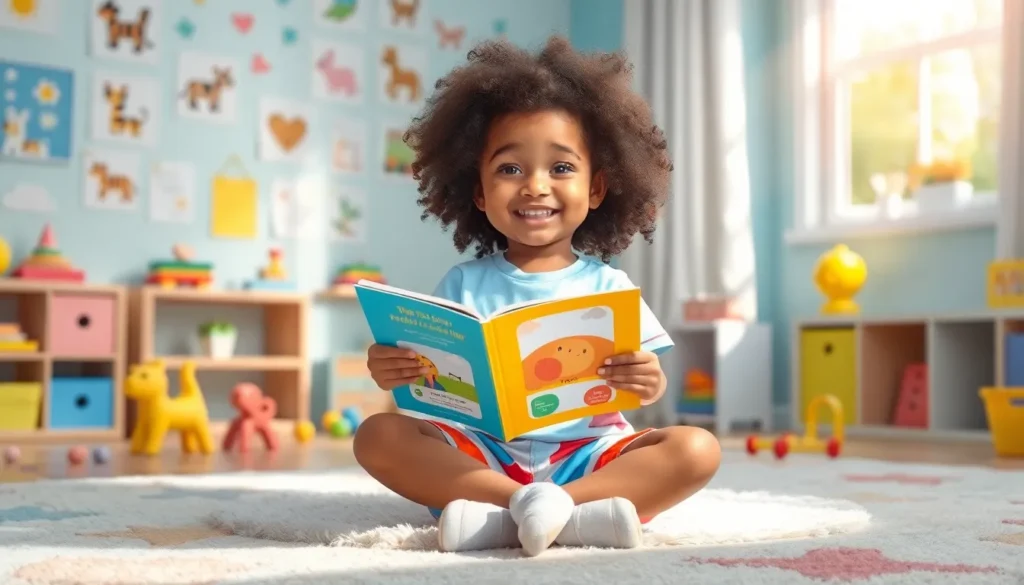Table of Contents
ToggleIn a world where toddlers seem to communicate exclusively through giggles and tantrums, unlocking the magic of literacy might feel like a daunting task. Yet, nurturing a love for reading in these tiny humans can be as simple as turning storytime into an adventure. Picture this: a spirited little one, eyes wide with wonder, as they dive into colorful pages filled with whimsical characters. That’s the power of toddler literacy!
Understanding Toddler Literacy
Understanding toddler literacy involves recognizing the skills that lay the foundation for reading and writing. This phase encompasses various developmental milestones that significantly shape a child’s communication abilities.
Definition of Toddler Literacy
Toddler literacy refers to the process through which young children, typically aged 1 to 3, begin to understand language in its written and spoken forms. Engaging with books, listening to stories, and recognizing letters contribute to this essential phase of literacy. Toddlers learn to associate sounds with symbols and develop vocabulary through interactive experiences. These early encounters with language foster curiosity and prepare them for future reading tasks.
Importance of Early Literacy Development
Early literacy development serves as a crucial stepping stone to academic success. Research shows that children exposed to books and storytelling at a young age exhibit enhanced language skills. Engaging in literacy-rich activities promotes comprehension and critical thinking. The skills gained during toddler years influence long-term reading abilities and educational achievement. Parents and caregivers play a vital role by providing access to diverse reading materials and creating regular storytime routines. Activities aimed at encouraging literacy also nurture a lifelong love for learning.
Key Components of Toddler Literacy

Toddler literacy involves several essential components that contribute to early language development and a passion for reading.
Language Skills
Language skills manifest through toddlers’ ability to communicate effectively. During this stage, children start to recognize and produce sounds, building a foundation for speaking and listening. Exposure to varied vocabulary enhances their understanding, enabling them to articulate thoughts and feelings. While storytelling plays a vital role, conversations with caregivers also significantly impact language acquisition. Engaging in daily conversations helps children grasp new words and sentence structures. Activities such as singing songs and reciting nursery rhymes further enhance linguistic abilities.
Print Awareness
Print awareness encompasses toddlers’ recognition and understanding of written language. Children begin to notice print in their environment, such as titles on books and labels. Identifying the difference between pictures and words is crucial for developing this awareness. Regularly reading to toddlers fosters familiarity with books and print. Pointing out letters and words while reading aids in reinforcing these concepts. Additionally, children learn how books are organized by exploring the front and back covers. Activities like pretending to read also boost print awareness, as toddlers imitate adult behaviors.
Engagement with Books
Engagement with books encourages toddlers to explore and interact with stories. The duration and depth of attention spent on books can vary among children. Introducing colorful illustrations and dynamic narratives captivates their interest. Reading aloud promotes a shared experience, enriching connections between caregivers and toddlers. Asking questions during storytime stimulates critical thinking and deepens comprehension. Providing access to a variety of genres exposes children to different writing styles and themes. By incorporating interactive elements, such as lift-the-flap or touch-and-feel books, caregivers can enhance engagement levels effectively.
Strategies to Promote Toddler Literacy
Promoting toddler literacy requires engaging methods that captivate young minds. Various strategies help in nurturing a love for reading and learning.
Reading Aloud
Reading aloud plays a pivotal role in developing language skills. Parents and caregivers create memorable experiences by choosing captivating books with vibrant illustrations. Engaging toddlers with expressive voices sparks interest and encourages interaction. Frequent reading expands vocabulary and comprehension, enhancing a child’s ability to communicate effectively. It’s beneficial to include a variety of genres, as exposure to different stories promotes curiosity and imagination.
Interactive Storytelling
Interactive storytelling fosters deeper connections to narratives. Encouraging toddlers to participate, such as making animal sounds or predicting outcomes, enhances engagement. Asking open-ended questions stimulates critical thinking and allows young children to express their ideas. Storytelling can be enhanced with puppets or props, making it more engaging. This hands-on approach nurtures creativity and develops comprehension skills, essential for successful literacy development.
Incorporating Play into Learning
Incorporating play into literacy activities makes learning enjoyable. Parents can use games that involve letters and sounds to reinforce language development. Activities like scavenger hunts can help toddlers identify letters in their environment. Creating crafts that involve writing or drawing promotes fine motor skills while developing literacy. Playful interactions naturally empower children to explore language confidently, forming a solid foundation for future reading and writing.
Challenges to Toddler Literacy
Fostering toddler literacy comes with various challenges that can impact a child’s development. Identifying and addressing these obstacles is essential for nurturing a love of reading and learning.
Identifying Learning Delays
Learning delays can hinder a toddler’s literacy progression. Signs may include limited speech, difficulty recognizing letters, or lack of interest in books. Early detection plays a critical role in implementing effective interventions. Engaging with speech therapists or early childhood educators can offer valuable insights into a child’s development. Research indicates that 10% to 15% of toddlers experience some form of developmental delay, highlighting the importance of monitoring progress closely. Observing interactions during reading time can reveal a child’s understanding of language and print. Parents and caregivers must remain vigilant, ensuring that any concerns are addressed promptly.
Addressing Screen Time Impact
Excessive screen time significantly affects toddler literacy skills. Studies suggest that children spending more than two hours daily on screens encounter delayed language development. Exposure to fast-paced media diminishes attention spans and limits interactive learning opportunities. Encouraging alternative activities, such as reading or engaging in imaginative play, can enhance literacy skills. Integrating educational apps can offer some benefits when used in moderation. Balancing screen time with traditional learning experiences helps maintain healthy development during these critical early years. Fostering communication and connection through conversations naturally counteracts the negative effects of screens, ultimately enriching the toddler’s literary journey.
Fostering toddler literacy is a rewarding journey that lays the groundwork for lifelong learning. By creating engaging reading experiences and nurturing a love for stories, parents and caregivers can significantly enhance a child’s language skills and comprehension.
It’s essential to provide diverse reading materials and maintain a balance between screen time and traditional literacy activities. Through interactive storytelling and play-based learning, toddlers can explore language in a fun and meaningful way.
Ultimately, the early years are crucial for developing strong communication skills, ensuring children are well-equipped for future academic success. Investing in these formative moments can lead to a brighter literary future for every child.







